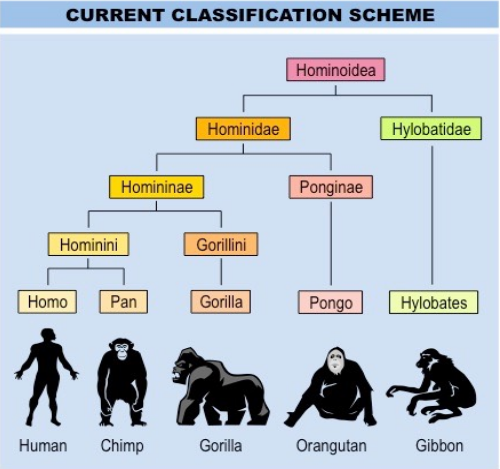Those. support. How much money can you make on this? (Part 1 - Russia)
There is a misconception on the market that support jobs are designed exclusively for inexperienced students. Say, this is the first step, and the further career will take shape in "dependence on ...". In practice, a good support specialist, like a good tester, for example, is a vocation. Both career and salary growth is quite possible here.
Market analysis from the developers of the Help Desk system Okdesk.
We communicate daily with dozens of people providing service support and subscription services; it was interesting for us to figure out what the Russian job market is in this area. What is “client” and “technical” support? What is the difference? What are the "levels" of expertise. Is it possible to earn on it and how much? Answers of the first similar research under cat. If someone is too lazy to read, then the main important figures and conclusions are at the very end of this publication.

If the community responds positively, we will try to do such reviews regularly, and we will use your comments as a source of initial data.
')

Before talking about income, it is necessary to put all the points in the question of terminology.
Support can be divided into:
Independently of this, internal and external support can be distinguished, although for our country it is still difficult to allocate something other than “technical” in “internal support”.
We wrote about the classification of support and automation systems designed for each of these classes here and here .
It is also significant that recruitment agencies that publish resumes, job openings and analytics rarely share these areas of work, calling everything “technical support” and distributing candidates only by the formal name of the position. In the course of analyzing the offers of Yandex.Works, we found only 48 companies whose vacancies correspond to the “customer support” / “customer support” requests . Moreover, part of the vacancies (in 7 companies) actually meant the performance of technical support duties, 9 more companies used this wording to search for the head of the call-center or the same technical support department.
In the western market (more on this in the next article), we see a clear division of vacancies into client and technical. At the same time, the requirements for candidates are strikingly different. As part of customer support, it is more important to be a “psychologist” and be able to communicate well. Specialized knowledge is important in technical support. And “techies” who love and know how to communicate with customers are generally worth their weight in gold.

In addition to the obvious difference in positions (operator / specialist / engineer / manager), recruitment agencies use a classification based on the duties and knowledge requirements and work experience declared in the vacancy. Sometimes their classification by level is confused with the division into lines of support within a company. But these concepts in general can not be mixed. The support lines within the company are about business processes, often unique to each company, and the personnel “levels” are about the expertise and expertise of a specialist.

Contrary to the above disclaimer, identifying the first career level and the first line of technical support in terms of business processes is quite acceptable. The first line of support has minimal requirements for specialized knowledge, respectively, people with minimal experience and competencies are needed here. However, salaries are lower here.
Among the standard requirements:
At this level, there is no need for higher education, almost never requires a foreign language (with rare exceptions).
Salaries traditionally vary depending on the city where the employer is located. Most of all they are in Moscow, the least (among large cities) - in Volgograd.
In 2013, at this level one could count on income from 11 to 25 thousand rubles . At the moment, among the vacancies with the announced salary, the offer varies from 15 to 35 thousand rubles .
Formally, there are vacancies on the market and with a large upper salary limit, but usually after studying their content, it becomes clear that they belong to higher levels - they require experience in related fields, non-standard skills or specific education. They are difficult to take into account in the general statistics.
Another caveat - at “this level,” only 45% of vacancies contain salary information . In total, 20% of all published vacancies in technical support offer jobs without experience .

Judging by the texts of published vacancies, a 1-2 year experience is required for positions at the “second level” , but specialists who have no experience in technical support can also apply for it. However, in this case, it becomes important experience in related areas, for example, in sales of any technology.
According to SuperJob four years ago at this level, experts can count on income from 15 to 30 thousand rubles .

Candidates get to this level in terms of SuperJob after a year of work with basic “admin” knowledge:
In advertisements, higher education requirements appear more often. Knowledge of English is primarily for reading documentation.
Statistics four years ago speaks of income in the range of 16 to 42 thousand rubles. Current data from Yandex.Works - from 20 to 100 thousand rubles , depending on the city and the proportion of “admin” work.
At the same time, there are few vacancies with an income of more than 60 thousand rubles, so such a wide range should not be misleading: 70-100 thousand rubles in this segment receive “stars”.
Of the total number of vacancies in support, 57% expect experience of 1-2 years, 11% - experience of 3-5 years. Greater experience is required in some extraordinary cases (at the time of analysis, only in 3 vacancies candidates were expected to have more than 6 years of experience).

Many large employers - companies that are able to offer a good salary or great prospects - do not show salaries in advertisements, preferring to name the final price after personal contact with the candidate.
According to “My Circle”, approximately every fifth vacancy in the IT segment does not contain salary data - which is 20% of the market ! By the way, if you don’t rely on personnel figures from publications and open Yandex.Work, then from more than 1000 companies offering technical support jobs in Russia, less than half of them publish salary data (in our experiment a little more than 400).
By the way, the statistics of recruitment agencies include either enterprises expanding technical support (recruiting new employees), or segments of the industry that are characterized by high staff turnover. Hence, the relatively low average incomes throughout the market - most of the statistics refer to the low price range (the salary of first-line specialists gets into the reports with a greater weight).

Employee income is not always expressed only in money. The lack of salary is sometimes compensated by various paid options - LCA, lunches, corporate transport from the metro, fitness clubs, English lessons and other training.
A number of companies prefer to “grow” technical support for themselves. In this case, the principles of recruitment for open positions are initially different. The more you plan to train candidates, the less requirements are placed on experience and knowledge at the stage of admission, and the lower the initially promised salary. In the personnel market of the largest cities you can always find several offers of a generally unpaid internship. A proposal for a salary to a trained candidate (with good luck) will be made only at the end of the internship.

Another factor is economic. Black and gray salaries exist, and their popularity (according to the same recruitment agencies) is growing despite all the attempts of the state to “whitewash” the business. It is not possible to offer any distinct distribution of wages, taking into account this factor.

“Deleted” staff is becoming more. By the way, in the USA such technical support specialists are on average even more than those who work in the office. We do not have any statistics at all. It is only known that the responses to vacancies with a remote office are 3-4 times more, i.e. for such work there is a tangible demand. At the same time, according to the data of “My Circle”, every third is already working remotely in IT industry communities.
In the Russian personnel market, they still like to save money on attracting narrow specialists by hiring multi-users. So, for example, customer support is sometimes combined with sales. As a result, there are ads for hiring salespeople with administration / support skills and, conversely, administrators with the ability to sell and maintain. To take into account the salary of such personnel in the general statistics is impossible.
On the other hand, many qualified specialists, as we wrote, work simultaneously on several jobs and this is another opportunity to seriously increase their income.
Although the specific numbers are constantly changing, there are still general trends regarding the hiring of technical support specialists.
Most often, the career of such specialists begins in departments with a more or less rigid division of responsibilities - where you can distinguish the first line with the simplest tasks (and, accordingly, the minimum requirements for the candidate’s knowledge). These may be call-centers of Internet providers or similar structures. Here they look not at knowledge, but at “universal” skills and abilities:
If these parameters are not specified in the ad, one way or another, most employers will evaluate them during the trial period.
With the development of sought-after skills, regardless of the level of the specialist, salaries are also increasing. In many cases, wage increases are affected by:
Technical skills and the ability to independently solve specialized tasks (the transition to the status of a support engineer in one of the narrow areas) significantly increase salaries . And the next salary “leap” occurs when a specialist takes over some of the administrative work - turns into the head of a group or division.
Total companies with vacancies in support in Russia for July-August 2017: 1025.
With an indication of salary: 436 (42.5%).
Companies with IT support jobs: 930 (91% of total companies with support jobs).
Of these, with an indication of salary: 394 (42% of the total number of companies with vacancies in support in the IT segment).
The following discussion deals only with IT vacancies:
Companies with vacancies in customer support / customer support - 48 . Of these, 9 are management positions in call centers and technical support; 3 is clearly related to sales, and 7 is actually in technical support (as it becomes clear already from a cursory study of the text of the announcement).
Already in the next publication we will look at how things are going abroad: what kind of revenues are there and is there any difference between technical support and client support.
Market analysis from the developers of the Help Desk system Okdesk.
We communicate daily with dozens of people providing service support and subscription services; it was interesting for us to figure out what the Russian job market is in this area. What is “client” and “technical” support? What is the difference? What are the "levels" of expertise. Is it possible to earn on it and how much? Answers of the first similar research under cat. If someone is too lazy to read, then the main important figures and conclusions are at the very end of this publication.

Some important explanations before reading.
- The official open reports of “personnel officers” in this part have not been updated for a long time - the latest data is for 2013 with SuperJob (before that - for 2011), therefore we will rely on 2 sources: the mentioned “official” report and our own searches on the basis of Yandex. Works that aggregate data from different personnel portals (as of July-August 2017).
- The presented quantitative estimates (vacancy rates, depending on experience, etc.) were carried out by the number of companies, not ads. We believe that this did not affect the accuracy, since the number of ads does not carry a semantic load: some companies place several ads to fill one vacancy, others - one advertisement for hiring an entire department. That is, we have not introduced any additional errors.
- In total, vacancies of 1025 companies across Russia were reviewed, of which 930, when published, attributed their proposals to the IT segment. Only 436 companies had salaries in advertisements (394 were from IT), but it is not always clear from the ad text whether the figure was published before or after the deduction of taxes (white or gray). By citing the figures in this article, we assumed that this is the income that the employee receives on his hands . However, in more detail on the "colorful" salaries, we also stop at the completion of this post.
If the community responds positively, we will try to do such reviews regularly, and we will use your comments as a source of initial data.
')
Support classification

Before talking about income, it is necessary to put all the points in the question of terminology.
Support can be divided into:
- “Technical”. That is, the one where the focus is on solving technical problems (usually with infrastructure, supported software or other equipment).
- “Customer” (Customer Service or Customer Support). The one where the key focus is on customer satisfaction. This type of support is primarily popular with b2c. And this part of the support is aimed at building long-term relationships with impersonal users. It is primarily used in banks, online stores, etc.
Independently of this, internal and external support can be distinguished, although for our country it is still difficult to allocate something other than “technical” in “internal support”.
We wrote about the classification of support and automation systems designed for each of these classes here and here .
It is also significant that recruitment agencies that publish resumes, job openings and analytics rarely share these areas of work, calling everything “technical support” and distributing candidates only by the formal name of the position. In the course of analyzing the offers of Yandex.Works, we found only 48 companies whose vacancies correspond to the “customer support” / “customer support” requests . Moreover, part of the vacancies (in 7 companies) actually meant the performance of technical support duties, 9 more companies used this wording to search for the head of the call-center or the same technical support department.
In the western market (more on this in the next article), we see a clear division of vacancies into client and technical. At the same time, the requirements for candidates are strikingly different. As part of customer support, it is more important to be a “psychologist” and be able to communicate well. Specialized knowledge is important in technical support. And “techies” who love and know how to communicate with customers are generally worth their weight in gold.
“Table of ranks” from personnel officers

In addition to the obvious difference in positions (operator / specialist / engineer / manager), recruitment agencies use a classification based on the duties and knowledge requirements and work experience declared in the vacancy. Sometimes their classification by level is confused with the division into lines of support within a company. But these concepts in general can not be mixed. The support lines within the company are about business processes, often unique to each company, and the personnel “levels” are about the expertise and expertise of a specialist.
“First line support” or starting positions

Contrary to the above disclaimer, identifying the first career level and the first line of technical support in terms of business processes is quite acceptable. The first line of support has minimal requirements for specialized knowledge, respectively, people with minimal experience and competencies are needed here. However, salaries are lower here.
Among the standard requirements:
- general understanding of “matte parts” (for example, PC hardware, peripherals and office equipment, if it comes to IT support);
- politeness;
- stress tolerance and other qualities that determine the ability to adequately communicate with users.
At this level, there is no need for higher education, almost never requires a foreign language (with rare exceptions).
The first line of support. Salaries
Salaries traditionally vary depending on the city where the employer is located. Most of all they are in Moscow, the least (among large cities) - in Volgograd.
In 2013, at this level one could count on income from 11 to 25 thousand rubles . At the moment, among the vacancies with the announced salary, the offer varies from 15 to 35 thousand rubles .
Formally, there are vacancies on the market and with a large upper salary limit, but usually after studying their content, it becomes clear that they belong to higher levels - they require experience in related fields, non-standard skills or specific education. They are difficult to take into account in the general statistics.
Another caveat - at “this level,” only 45% of vacancies contain salary information . In total, 20% of all published vacancies in technical support offer jobs without experience .
“Floated-know” level

Judging by the texts of published vacancies, a 1-2 year experience is required for positions at the “second level” , but specialists who have no experience in technical support can also apply for it. However, in this case, it becomes important experience in related areas, for example, in sales of any technology.
According to SuperJob four years ago at this level, experts can count on income from 15 to 30 thousand rubles .
“Expert” tech support

Candidates get to this level in terms of SuperJob after a year of work with basic “admin” knowledge:
- the ability to find faults;
- understanding of computer systems and networks;
- experience in installing and configuring hardware and software.
In advertisements, higher education requirements appear more often. Knowledge of English is primarily for reading documentation.
Statistics four years ago speaks of income in the range of 16 to 42 thousand rubles. Current data from Yandex.Works - from 20 to 100 thousand rubles , depending on the city and the proportion of “admin” work.
At the same time, there are few vacancies with an income of more than 60 thousand rubles, so such a wide range should not be misleading: 70-100 thousand rubles in this segment receive “stars”.
Of the total number of vacancies in support, 57% expect experience of 1-2 years, 11% - experience of 3-5 years. Greater experience is required in some extraordinary cases (at the time of analysis, only in 3 vacancies candidates were expected to have more than 6 years of experience).
From heaven to earth or the real situation

Many large employers - companies that are able to offer a good salary or great prospects - do not show salaries in advertisements, preferring to name the final price after personal contact with the candidate.
According to “My Circle”, approximately every fifth vacancy in the IT segment does not contain salary data - which is 20% of the market ! By the way, if you don’t rely on personnel figures from publications and open Yandex.Work, then from more than 1000 companies offering technical support jobs in Russia, less than half of them publish salary data (in our experiment a little more than 400).
By the way, the statistics of recruitment agencies include either enterprises expanding technical support (recruiting new employees), or segments of the industry that are characterized by high staff turnover. Hence, the relatively low average incomes throughout the market - most of the statistics refer to the low price range (the salary of first-line specialists gets into the reports with a greater weight).
Extra buns

Employee income is not always expressed only in money. The lack of salary is sometimes compensated by various paid options - LCA, lunches, corporate transport from the metro, fitness clubs, English lessons and other training.
A number of companies prefer to “grow” technical support for themselves. In this case, the principles of recruitment for open positions are initially different. The more you plan to train candidates, the less requirements are placed on experience and knowledge at the stage of admission, and the lower the initially promised salary. In the personnel market of the largest cities you can always find several offers of a generally unpaid internship. A proposal for a salary to a trained candidate (with good luck) will be made only at the end of the internship.
Multi-colored salaries

Another factor is economic. Black and gray salaries exist, and their popularity (according to the same recruitment agencies) is growing despite all the attempts of the state to “whitewash” the business. It is not possible to offer any distinct distribution of wages, taking into account this factor.
Remote technical support and combination

“Deleted” staff is becoming more. By the way, in the USA such technical support specialists are on average even more than those who work in the office. We do not have any statistics at all. It is only known that the responses to vacancies with a remote office are 3-4 times more, i.e. for such work there is a tangible demand. At the same time, according to the data of “My Circle”, every third is already working remotely in IT industry communities.
In the Russian personnel market, they still like to save money on attracting narrow specialists by hiring multi-users. So, for example, customer support is sometimes combined with sales. As a result, there are ads for hiring salespeople with administration / support skills and, conversely, administrators with the ability to sell and maintain. To take into account the salary of such personnel in the general statistics is impossible.
On the other hand, many qualified specialists, as we wrote, work simultaneously on several jobs and this is another opportunity to seriously increase their income.
The result of the analysis - the overall picture
Although the specific numbers are constantly changing, there are still general trends regarding the hiring of technical support specialists.
Most often, the career of such specialists begins in departments with a more or less rigid division of responsibilities - where you can distinguish the first line with the simplest tasks (and, accordingly, the minimum requirements for the candidate’s knowledge). These may be call-centers of Internet providers or similar structures. Here they look not at knowledge, but at “universal” skills and abilities:
- stress resistance,
- literacy,
- politeness,
- discipline,
- pure speech.
If these parameters are not specified in the ad, one way or another, most employers will evaluate them during the trial period.
With the development of sought-after skills, regardless of the level of the specialist, salaries are also increasing. In many cases, wage increases are affected by:
- higher technical education (or special education, if we are talking about industries, such as air conditioning);
- foreign language - in most cases, English, but there are non-standard requests;
- knowledge of legislation in a particular field or basis of accounting (often financial support is included in the scope of responsibility of support, in particular, the choice of payment methods or refunds).
Technical skills and the ability to independently solve specialized tasks (the transition to the status of a support engineer in one of the narrow areas) significantly increase salaries . And the next salary “leap” occurs when a specialist takes over some of the administrative work - turns into the head of a group or division.
Instead of conclusions or important figures
Total companies with vacancies in support in Russia for July-August 2017: 1025.
With an indication of salary: 436 (42.5%).
Companies with IT support jobs: 930 (91% of total companies with support jobs).
Of these, with an indication of salary: 394 (42% of the total number of companies with vacancies in support in the IT segment).
The following discussion deals only with IT vacancies:
- Without experience: 187 (20% of the total number of companies with vacancies in support in the IT segment), of which 85 (45%) are with salary; positions - specialist, engineer, operator.
- Experience 1 - 2 years: 532 (57%), with a salary of 230 (43%); positions - specialist, engineer, operator.
- Experience 3 - 5 years: 101 (11%), with a salary - 33 (32%); positions - manager, engineer, specialist.
- 6 or more years of experience - only 3 vacancies (with a salary - only 1); positions - engineer and manager.
Companies with vacancies in customer support / customer support - 48 . Of these, 9 are management positions in call centers and technical support; 3 is clearly related to sales, and 7 is actually in technical support (as it becomes clear already from a cursory study of the text of the announcement).
Already in the next publication we will look at how things are going abroad: what kind of revenues are there and is there any difference between technical support and client support.
Source: https://habr.com/ru/post/340426/
All Articles